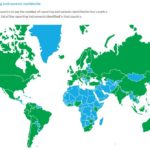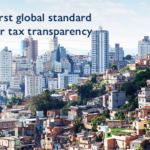Dutch state secretary Pieter Van Geel proposed a partnership with the WBCSD for a clean, clever and competitive Europe, before an audience of Chief Executive Officers from 70 multinational companies gathered in Amsterdam.
Mr Van Geel said the partnership would be officially kicked off during the last Environment Council under the Dutch presidency in December. The Dutch EU presidency has launched the Clean, Clever, Competitive initiative in July during their Informal Environment Council in Maastricht to move eco-efficiency and eco-innovation higher up the political agenda in Europe.
The Word Business Council for Sustainable Development, a coalition of 170 multinational companies dedicated to sustainable development, has coined the eco-efficiency concept in the 90s to describe the positive connection between economy and ecology. "This apparently simple idea to create more value with less impact has proven revolutionary to help companies turn sustainable development into action," said Stigson.
The WBCSD has cooperated closely on the current initiative of the Dutch presidency. "This initiative is the right thing at the right moment to convince European leaders that economy and ecology go hand in hand and that eco-efficiency can contribute to European competitiveness," said Van Geel. The WBCSD is supportive of the work of the Informal Environment Council.
European leaders will soon start the discussion on how to move forward with the Lisbon strategy. In 2000, they had agreed to become the most competitive and dynamic knowledge-based economy in the world by 2010. Next week, former Dutch prime minister Kok will publish a report with recommendations on how to best use the synergies between environment and economy to make Europe more competitive.
Van Geel went on to explain that strengthening competitiveness by improving the market perspective for eco-innovation is in the interest of EU member states as well as companies operating in Europe. It is thus a natural step for both EU member states and business to take up the challenge together. The European environment ministers are convinced, the WBCSD is convinced, now we have to convince the EU governments and European business, he said.
The time is ripe for member states, the European Commission and business representatives to work out a joint policy package that will support companies, stimulate economic growth and employment, and improve the market perspective for products and services that are truly eco-efficient.



